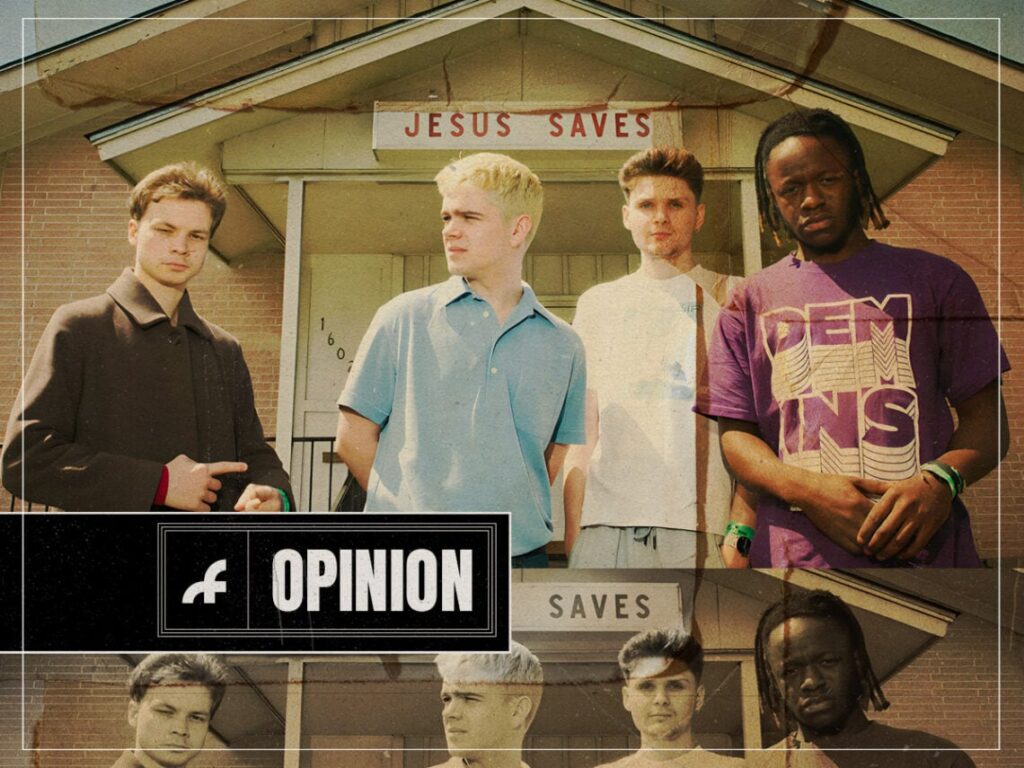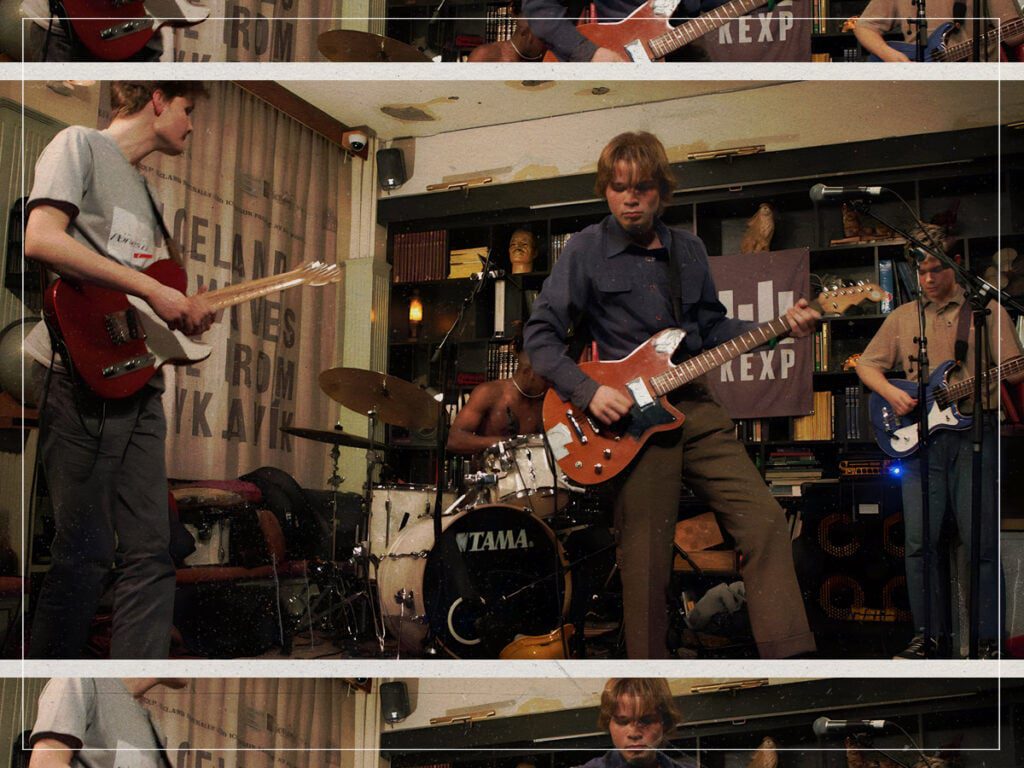The Black Midi split: Quitting while ahead is commendable and typifies the band
 Posted On
Posted On
(Credits: Far Out / Daniel Topete)
The announcement of Black Midi’s “hiatus” this week has left fans with many questions, shocked that the band has decided to step back. Yet, for those paying close attention, the signs have been there for a while. While frontman Geordie Greep has been pursuing a solo career, and drummer Morgan Simpson has been focusing on his own projects, this decision raises broader questions about when is the right time for a band to call it a day and whether quitting while on top might actually leave the door open for a future reunion.
Quickly after they formed in 2017 and began playing shows in London, the quartet, who met at the Brit School, gained a reputation for their frenetic and complex sound. It existed at a nexus between the dark atmosphere of post-rock acts such as Slint, jazz, and the avant-garde. It was undeniably fresh, and given the group’s evident ability to craft technically brilliant but captivating music, they rose meteorically, becoming one of the outfits most closely associated with the Brixton Windmill and the supposed south London scene.
I was on tour with my band in early 2019, and fascinating mentions of Black Midi often arose in the dingy, weed-filled rooms we stayed in up and down the country. It genuinely felt like rock music was being saved from the stagnant post-punk mania. It was different and totally authentic, not words you often hear.
The group did it right, too, sticking to their roots, performing with great Damo Suzuki of Can and performing a KEXP live session in Iceland, which helped increase their prominence and put them at the forefront of contemporary guitar bands, skipping a few stops that many find themselves languishing in.
They then signed to Rough Trade, and when their Dan Carey-produced debut album, Schlagenheim, arrived in 2019, it confirmed that the hype was very much warranted. I still remember where I was the first time I heard the clangorous opener ‘953’, and I was knocked back by what unfolded. Unsurprisingly, the record was nominated for the Mercury Prize, and the At the Drive-In-esque performance of ‘bmbmbm’ remains one of the most memorable from the ceremony in recent years, with then-guitarist Matt Kwasniewski-Kelvin losing his shit as if the spirit of Omar Rodríguez-López had entered through the soles of his Dr Martens.
Of course, the band carried on, refining their sound and pursuing a much more prog, jazz-inflected and altogether more batshit approach on their second and third albums, 2021’s Cavalcade and 2022’s Hellfire. The menacing groove of ‘John L’ from the sophomore effort remains one of their best cuts, with ‘Welcome to Hell’ typifying the more bombastic area they moved into, with its distinctly 1970s avant-garde and Frank Zappa-inspired character.

Though Black Midi inspired a wave of imitators, as any truly innovative act often does, with their math-rock influence echoing across the country, particularly at venues like the Windmill, they never stopped pushing themselves forward and evolving their sound. Despite some claims that their debut was the peak or that they lost some of their original spark, the band continued to explore more complex and challenging music, even as it diverged from the heavier, more immediate impact of their early efforts.
When Geordie Greep announced on Instagram Live that Black Midi was “indefinitely over”, he caught many off guard, including bassist Cameron Picton, who claimed to be blindsided by the revelation. Picton suggested they had agreed not to announce a formal breakup and, in a now-deleted tweet, mentioned that he is working on a new project called Camera Picture. Their management later clarified that the trio was simply taking a break to pursue solo work, leaving the door open for Black Midi’s future. By this point, though, that feels like nothing more than a scrambling of damage limitation. This turn of events strongly suggests that the band feels they have accomplished what they originally set out to do, at least for now.
There’s much to be said for bands choosing to end things before their cultural currency begins to fade. While many groups drag out their careers, becoming legacy acts that barely resemble their former glory, and others manage to return after years away and seamlessly recapture their magic, Black Midi deserves kudos for making such a bold move so early on. It speaks volumes about their integrity and character, showing a commitment to their art over prolonging success for its own sake.
In their brief time together, Black Midi accomplished more than most bands could ever dream of, leaving a significant and tangible impact on the music scene. Remarkably, with the members still in their early 20s, they have long artistic journeys ahead. By choosing to end Black Midi during a period of creative vitality, they’ve ensured that if they do return, there will still be strong demand for their music. This decision allows them greater creative freedom in the future, with fewer missteps to correct and less pressure to navigate.
Sure, they might have grown bored, needed a reset, or simply felt they had completed what they set out to do, but Black Midi quitting while ahead is perfectly in line with a band so averse to mainstream demands. They always followed their own instincts, which is what made them such a powerful force and set them apart from the imitators. If they don’t return, they’ll stand as our generation’s ultimate cult band—the kind our kids will ask us about, evoking the same sense of wonder that surrounded them in their early days.
[embedded content]
Related Topics


